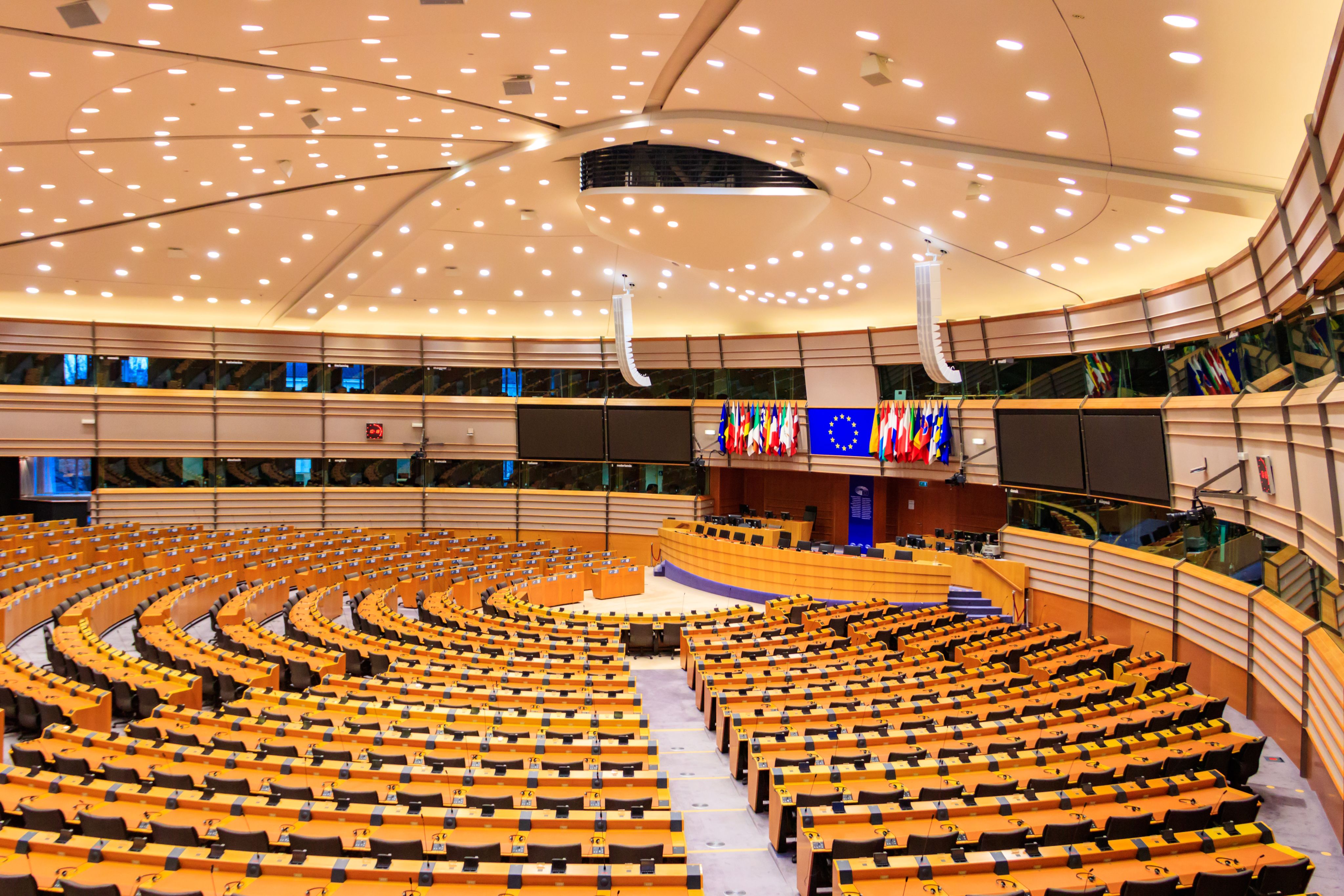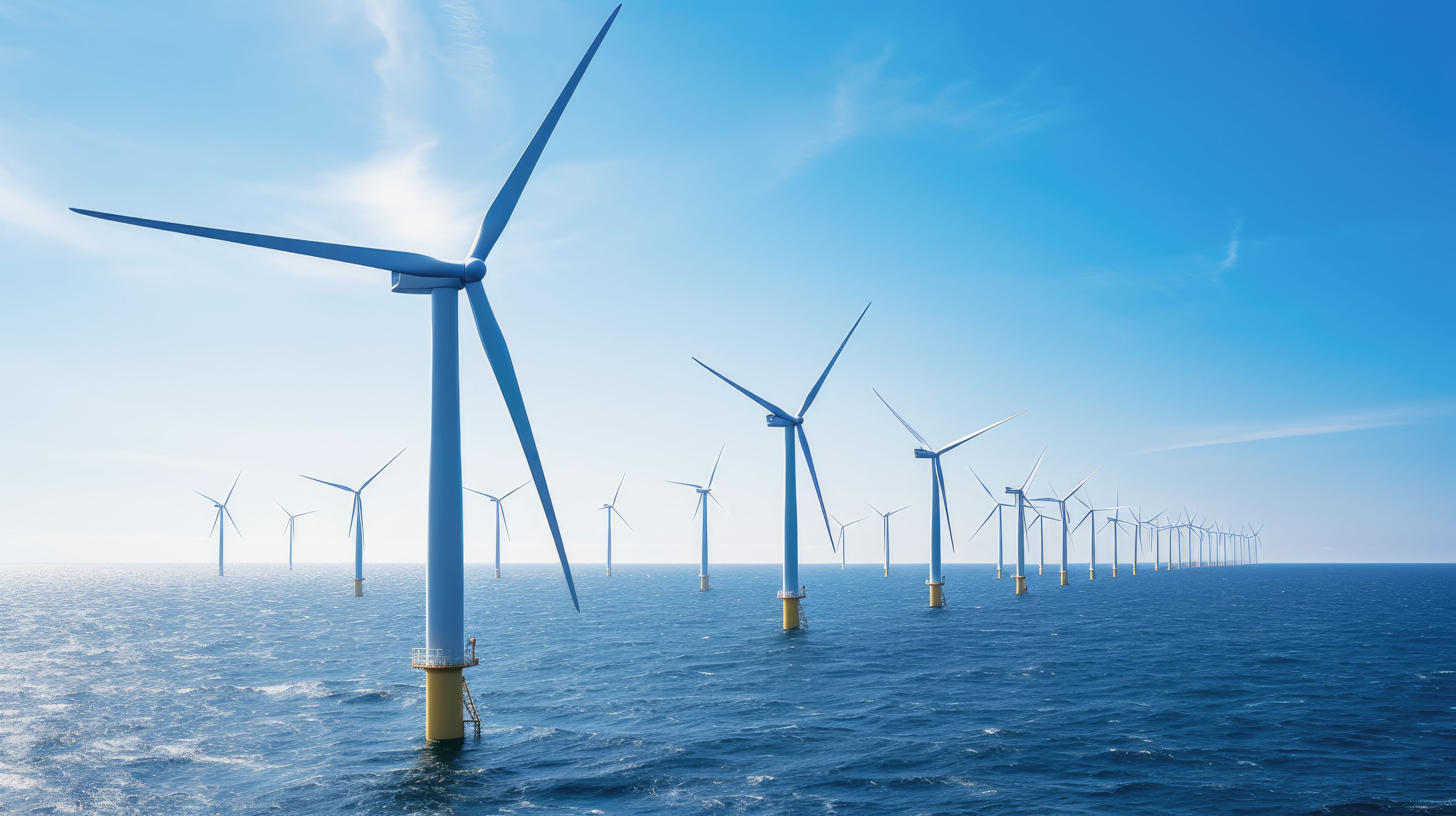A deep dive into the European elections
A deep dive into the European elections
Hot on the heels of the European elections and a striking shift to the right, MLex journalists tease out the potential ramifications for business across AI & digital, mergers, trade, finance, energy and more:
EU’s regulation of artificial intelligence is just getting started
By Luca Bertuzzi
EU digital policy likely to stay on course despite rockier regulatory road ahead
By Sara Brandstätter, Sam Clark and Luca Bertuzzi
EU trade policy risks protectionist turn as power shifts to the right
By Oscar Pandiello
EU capital markets union is in the spotlight, the challenge is to keep momentum up
By Jean Comte
Climate laws may come under fire as EU Parliament braces for more far-right lawmakers
By Stefano Porciello
EU’s review of Lufthansa-ITA spells trouble for Von der Leyen, and bloc’s merger rules
By Nicholas Hirst
Keep scrolling for our expert analysis, or start your 14-day free trial now for real-time access to our exclusive news and insights.

EU’s regulation of artificial intelligence is just getting started
13 June 2024
By Luca Bertuzzi
With this week's European elections delivering a political shift to the right, the European Commission is expected to shift its priority to implementing the raft of digital policies that have been rolled out over the past five years.
Ensuring the EU's landmark AI Act, which regulates artificial intelligence, is put in place will be one of its biggest concerns, as the flagship legislation is set to hit the books next month. The law took almost three years of intense negotiations and will fully start to bite by August 2026.
Yet there are still several bumps ahead on the legislative path that need to be dealt with.
The shift to focusing on implementation and enforcement might be in tune with the strengthening of right-wing and far-right delegations in the European Parliament. However, for mid-level EU technocrats looking for a promotion to lawmakers wanting campaign material, there will still be incentives to pass new laws, including some that will regulate AI in the workplace and copyright.
The rightward political shift will also certainly change the regulatory environment, increasing the risk that decisions are dictated by political pressure rather than objective factors. Initial enforcement actions under the Digital Services Act suggest that EU institutions could prioritize making a splash rather than building a solid case or developing a constructive relationship with the regulated companies.
But when it comes to the AI Act, senior EU officials have repeatedly made clear that the law aims to set the international standard in this regulatory space, exploiting the first-mover advantage to replicate the success of the General Data Protection Regulation, which inspired data protection regimes worldwide.
All of this leaves the EU's executive branch in the driver's seat, overseeing the compliance of AI companies like Mistral, OpenAI and Anthropic that commercialize powerful models.
Unprecedented role
Models like GPT-4, which underpin ChatGPT, are currently the most complex type of AI and can be adapted to a various applications. Some experts even consider that, rather than building AI products from scratch, models will become the foundation layer of most applications in the near future.
As a result, the commission will have to police some of the most sophisticated technologies of our time, with new generations released every few months. Regulatory capacity, as usual, will be limited.
Whether the AI Act will be deemed a success story will depend on how much the EU executive will manage to keep the pulse on the technological trends and market development.
The commission will review the lists of prohibited practices and high-risk applications annually and decide whether they need updating — a compelling and frightening task considering how AI technologies are such a moving target.
Luckily, the AI Act provides structures to address these challenges. A scientific panel will be set up to send qualified alerts when a systemic risk arises, an advisory forum will provide technical advice, and AI app providers should maintain a post-market monitoring system.
However, the regulator's track record suggests a significant risk it won't have the workforce necessary to meet legal deadlines, will do its own thing, and will dismiss external inputs.
Enforcement pitfalls
The commission has high hopes for the legislation, but some pitfalls to its enforcement remain.
The EU executive might have to move fast and make bold regulatory decisions, something it is not used to doing. The AI Act follows the blueprint of traditional product safety legislation. But this doesn’t consider that AI applications can evolve so much that outcomes are sometimes impossible to predict, even for developers.
Another case in point is the AI Office, a new body established to implement the AI rulebook. Besides the rebranding, the office is little more than a repackaging of the previous directorate in charge of AI policy, including the same leadership.
The commission will also have to shift its approach to digital policy with a more regulatory and enforcement-driven role. The AI Act, the Digital Markets Act, and the Digital Services Act — all flagship regulations — have set high expectations.
Unfinished business
There is also some unfinished business. Nicolas Schmit, the leading candidate of the Party of European Socialists and the second-largest political family in the European Parliament, has already made clear that he wants legislation to regulate AI in the workplace.
Schmit is the outgoing commissioner for social affairs, and his party is gunning to maintain that portfolio. In an external study commissioned on this matter last year, the EU executive inquired about using specific technologies like apps and wearables, potentially vulnerable worker categories, and the managerial functions supported by AI.
The other open question for the next commission is likely to be the copyright issue in relation to training AI models. The AI Act does not necessarily modify the EU copyright regime but introduces some transparency obligations to help rightsholders enforce their rights.
Still, EU policymakers share the understanding that the current copyright rules are not fit for purpose regarding AI. However, there does not seem to be an appetite to reopen the Copyright Directive, one of the most controversial digital files Brussels has ever seen.
Instead, the intent seems to be to revise the EU Database Directive instead, which could also work as the aim is to regulate the dataset that feeds into the AI models.
Market concentration
There is also the question of concentration in the AI market, which is garnering regulators’ attention in the EU, the UK and the US. Whether the commission will take a more muscular enforcement approach in this area will largely depend on who will take over from Margrethe Vestager, the EU competition chief for the past decade.
Vestager’s approach has been to issue hefty fines against Big Tech companies, but she has shied away from structural remedies or blocking mergers that proved highly consequential, like Google-Fitbit and Facebook-WhatsApp.
She has been criticized for failing to move the dial in the concentration of digital markets. The DMA, a law setting a list of do’s and don’ts for Big Tech companies, is largely a recognition that traditional antitrust probes have proved inadequate in such fast-moving markets.
The law aims to prevent digital giants from leveraging their dominance to gain prominence in adjacent markets. However, it failed to cover the cloud market, allowing hyper scalers to become the sole way for AI start-ups to train and distribute their models.
With the European Parliament shifting toward the right of the political spectrum, Vestager’s approach will come under pressure amid the drive to make competition a more subservient part of industrial policy in a broader bid toward European strategic autonomy.
Despite EU officials patting each other on the back for having set the golden standards for AI, the reality is much more complex and past experiences should call for caution.
The EU’s path to regulating artificial intelligence has only just started, but it's going to be a long and winding one.

EU digital policy likely to stay on course despite rockier regulatory road ahead
13 June 2024
By Sara Brandstätter, Sam Clark and Luca Bertuzzi
While this week's European elections results will give a predictable boost to far-right parties on climate, immigration and farm policies, the shift in political direction also means the regulatory environment for digital policies will change in how they are drafted, implemented and enforced.
The ruling coalition between the center-right European People’s Party, the center-left Socialist and Democrats and the liberal Renew group may have held on in the European Parliament. Ursula von der Leyen, the current president of the European Commission, is expected to stay in the post for another five years, through a likely return of that alliance that is still being negotiated.
However, they don't always agree on key digital policies that are currently being negotiated, such as weighing the balance between fundamental rights and security when it comes to surveillance laws. The shift of power to the right will also change policy priorities and the regulatory climate, impacting contentious issues such as the reform of the General Data Protection Regulation's procedural rules.
The influx of far-right lawmakers not only strengthens the hand of the EPP, which holds the most seats, to impose its policy agenda across the board. It also gives the EPP an alternative voting block on which to rely: center-right lawmakers can join forces with the far-right European Conservatives and Reformists and Identity and Democracy groups to vote on regulation when they can't agree with their coalition partners.
Security vs. privacy
One such issue might be data protection and surveillance, a particularly controversial issue where the center-right group prefers more robust law enforcement measures, while their left-wing allies push for fundamental rights protection.
The center-right has been divided by issues in the past, such as remote biometric identification. This could leave the EPP tempted to seek an alternative majority on a case-by-case basis, since national sensitivities are often a factor in how EU lawmakers vote.
There is also an opportunity for a shakeup on the legislature's committees, including the Committee on Civil Liberties, Justice and Home Affairs. Sophie in ‘t Veld and Patrick Breyer, two prominent voices against state surveillance, aren't returning for another mandate, which opens the door for policies that force digital companies to turn over data to have more success.
The parliament has already made its proposal in the EU’s attempt to tackle online child sexual abuse material, but the new dynamic could still change the outcome. The committee's version of the legislation is more protective of privacy than the commission’s original text.
National governments have yet to agree on their text. But once they do, a parliament weaker on surveillance may struggle to hold on to its position in negotiations.
Rightward shift
The elections results will also have a deeper impact in terms of setting the political climate in which the policy agenda is developed. A gravitational shift toward the right is likely to push the commission to prioritize implementation, enforcement and consistency across existing legislation.
In digital policy, the EU's executive arm is expected to focus on enacting the raft of major legislation adopted over the past five years, including the AI Act, the Digital Markets Act, the Digital Services Act and the Data Act.
Implementation work, for the large part, sidelines the legislature because it is done either by the commission or national regulators. Secondary legislation, which is critical to implementation, allows for only limited parliament involvement.
“We need to consider as a parliament how we can strengthen our influence in checking whether laws are implemented, and how they are implemented,” * German lawmaker Birgit Sippel told MLex.
Bulgarian MEP Eva Maydell said that parliament has an important role in monitoring implementation, particularly when it comes to the AI Act. A successful next term should mean prioritizing “sound implementation … greater guidance and support for companies [and] cutting red tape," she said.
Lawmakers can remain relevant by asking questions of the commission and closely watching the implementation process, Sippel said. When new legislation is proposed, the regulator should “always carry out an impact assessment in advance," she added.
The Council of the EU adopted political conclusions in May asking the commission to make the current rules work before proposing new laws, something the EPP has also been vocal about in parliament.
Similar discussions happen at the end of every five-year mandate, but with the new laws on AI, online content and market concentration, the commission has taken on an unprecedented role as a digital regulator to be reckoned with.
Rocky road ahead?
While digital policy may drop in the list of priorities, the right-wing shift is set to boost the broader debate on Europe's technological sovereignty, economic competitiveness and homegrown champions.
The commission is likely to face further parliamentary scrutiny regarding its economic security agenda, particularly on the risk assessment of critical technologies that might be seen as overstepping the sovereignty of EU member states.
Implementation may be the focus of the next mandate, but the EU institutions will continue lawmaking. Legislation fighting online child sexual abuse material is a priority for many. Negotiations are due to take place late in the year on how to reform the GDPR’s procedural rules. The EU executive is also expected to propose legislation on AI regarding employment and copyright.
An overhaul of consumer protection rules in the digital space could morph into digital “fairness” legislation regulating dark patterns, influencer marketing and web cookies. A separate proposal on the digital advertising sector could also come.
Cybersecurity rules also need to be agreed upon, so pro-Russian and anti-EU forces in parliament could derail efforts to protect critical systems and data.
EU internal market chief Thierry Breton has pushed the idea of a Digital Networks Act, which has proven controversial among member states. The success of this initiative depends on who will be in charge of his portfolio in the new commission.
While the far-right's gains will shift regulatory priorities, the overall trajectory of EU digital policy is likely to remain largely unchanged, albeit with some added challenges and scrutiny along the way.
* MLex translation from the original German

EU trade policy risks protectionist turn as power shifts to the right
13 June 2024
By Oscar Pandiello
EU trade policymakers have been doing some soul searching over the past few months, as they wobble over whether to embrace the free trade spirit that the bloc was founded on or to adopt the broader return of protectionist regulation happening around the world.
The results of this week's European election may have given them a simple answer: it's up to the European People’s Party.
The center-right group secured 186 seats out of the 720 that were up for grabs in the European Parliament on Sunday — 10 seats more than in the previous term. That's almost 50 seats ahead of the second-place party, the Socialists and Democrats, giving Ursula von der Leyen a good chance of remaining as European Commission chief if she gets the necessary backing from national governments and lawmakers.
But even if she gains the support of the current coalition of the center-right, center-left and liberals, the influx of far-right lawmakers from the European Conservatives and Reformists and Identity and Democracy groups opens the door for the EPP to consider other options if it doesn't agree with its allies on certain policy.
Both far-right groups aren't known for their pro-trade positions. Instead, they have vowed to champion rules prioritizing local industry over international companies, oppose free trade agreements and weaken environmental requirements.
This leaves the center-right to either defend its position as the “party of free and fair trade,” as stated in their election manifesto, or work closely with the far right to protect farmers and EU companies from third-country competition.
Priority shift
Economic security has recently been at the top of the EU regulatory agenda. Reshoring strategic industries, investing in the production of cutting-edge technologies, and diversifying the value chain of critical raw materials will be top priorities for the next five-year mandate. This trend, however, may create tensions with the bloc’s trading partners.
An internal commission document, seen by MLex, outlines these priorities for the upcoming political cycle. The commission asked its departments to provide a glimpse of their plans, gathering 66 priorities from various directorates-general.
The trade department submitted two priorities: general trade, which includes FTAs and the aim to revamp the World Trade Organization, and economic security. When it comes to the latter, there is a need for “promoting the EU's economic base and competitiveness, protecting against risks … and partnering with the broadest possible range of countries to address shared concerns and interests,” the bloc's trade officials said.
Will the parliament have a say on these matters? Most likely, as the economic security package announced by the commission this year will head to the legislature in the fall.
The first piece of this puzzle will be the revamp of the Foreign Direct Investment Regulation, which aims to toughen the controls of third-country investments that could potentially affect the key sectors of the EU’s internal market. The assembly will work on its initial stance once the members of parliamentary committees are finalized.
There’s a broad consensus among EU political parties on the need to develop the EU’s industrial capacities and tackle non-market distortions that could lead to China taking a dominant position in some strategic sectors.
Yet some problems could arise during the inter-institutional negotiations, expected for 2025. One EU member state — Hungary — is becoming the top investment destination for Chinese companies, especially in the electric vehicle sector.
It could still take another year and a half before lawmakers and EU countries begin discussing the outbound investment monitoring system, which was proposed by the EU’s executive arm in January.
Green rollback
Some of the most influential trade lawmakers will continue their work for the next five years. The international trade committee chair, German Socialist Bernd Lange, was re-elected for his sixth term, and he has already shown his willingness to continue working “for fair trade and reliable partnerships" on X.
The EPP’s coordinator for the chamber’s trade committee, Swedish lawmaker Jörgen Warborn, will also serve for five more years in his current position. Warborn said on X that he was a “strong believer in free trade” and aims to continue as a spokesperson for the EPP in the committee.
The seasoned members will need to contend with new members from far-right parties and a weaker representation for the Greens, which could result in a less environmental approach to upcoming trade-related laws.
However, the most controversial files might be discussed outside the trade committee, which has been the case for the last five years. The Corporate Sustainability Due Diligence, the Deforestation Law and the EU’s Forced Labor Ban laws were totally or partially negotiated in other committees.
The political balance of the new parliament will make it much more difficult to pass similar laws, as cutting red tape for EU companies has been a top priority for right-wing lawmakers. The EPP now has a sufficient majority to water down similar proposals in favor of pro-business interests.
The commission will also be able to review approved laws through delegated and implementing acts. This will be the last opportunity to shape the Green Deal initiatives, and some parties are already calling to ease EU business requirements regarding their impact on the environment and human rights.
Trade deal fears
Parliament wants its voice to be heard when it comes to trade deals. The EU is changing its approach to adopting free trade agreements, splitting deals into two to allow tariff-free regimes to be adopted faster. The move means lawmakers would share power with EU countries to pass the most substantial parts of the commercial agreements.
However, some of the most important deals have been stalled for a long time. Agreements with Australia, India and the Mercosur bloc in South America have been delayed due to disagreements over environmental clauses or the introduction of tariff rate quotas on certain sensitive goods.
France's Rassemblement National is expected to influence the conversation on some of these deals. With 30 seats, RN leader Jordan Bardella will have the political heft to combat trade deals that could lead to more imports of agricultural goods from outside the EU.
Farming lobbies have been pushing to block new deals, arguing that they will flood the EU’s market with cheap imports. This stance has gained general support in the chamber following the EU elections.
One of the big questions is whether the European Conservatives and Reformists will push the free trade agenda, or join forces with their Identity and Democracy counterparts to roll back trade deals. It’s unclear if the two far-right parties can form a single group, but free trade advocates within the ECR may prefer to support broadening the bloc’s trade horizon over the concerns of the farmers.
The right-wing shift is expected to shape the bloc’s trade future. Now it’s the EPP’s turn to make choices and decide if expanding free trade is worthwhile in an increasingly closed and protectionist world.

EU capital markets union is in the spotlight, the challenge is to keep momentum up
12 June 2024
By Jean Comte
The next summit of EU heads of state, happening on June 27 to 28, promises to be a lengthy affair, with support to Ukraine, EU defense strategy and high-level appointments after the European elections all on the agenda, according to a preparatory document seen by MLex.
It will also “review progress” on work toward the EU’s Capital Markets Union, the memo notes. This part perhaps shouldn’t take long, given that the last debate on the topic was at the previous European Council meeting in April. Leaders held a long discussion there on the competitiveness of the EU economy and called in particular for work to be advanced “without delay.”
Last month, member states agreed a directive on withholding tax harmonization. They also agreed in principle on a set of rules for retail finance, due to be rubber-stamped today, but that will still need final negotiations with the European Parliament. They tried to secure a deal on corporate insolvency, but failed because of national pushes for more flexibility.
Other files relevant to the capital markets union under discussion among member states include open banking and the digital euro, on which discussions are ongoing. Their fates are unclear, and agreement would only allow the start of final negotiations with the parliament, as with the retail finance file.
In a common statement adopted at their April meeting, EU leaders mentioned other ideas, including tweaks to prudential regulation to boost securitization, the set-up of a new retail investment product, or some arrangement regarding financial supervision.
But those need a legislative proposal from the European Commission, which has almost ended its term — meaning such a move will be up to the next commission, which will start work in November or December.
Keeping the momentum
But the progress of capital markets union files — or lack of it — isn't really the main issue. EU leaders know very well that little advances can be made on such technical files in only two months, and in such a disrupted political setting, and they will not have wasted time measuring them.
Their real goal is rather to keep attention on the topic and maintain momentum, making sure that ministers, diplomats, lawmakers and officials continue the laborious task of inching negotiations forward on all open files. This is why they will mention the topic in the conclusions adopted at the end of the summit, just as they did for the past two.
Completing the capital markets union is a longstanding issue in Brussels, where policymakers have debated it for almost 10 years, with varying levels of priority. It came back to the forefront this year, when finance ministers adopted a dedicated action plan for the next commission, and EU leaders don't want it to go away.
Eyes on the Eurogroup
Beyond the leaders' push, this responsibility will probably come down to finance ministers, in particular the Eurogroup, the body which brings together finance ministers from the eurozone — although talks were held in inclusive format, meaning all member states could participate.
The president of the Eurogroup, Paschal Donohoe, recently published a work plan, with monthly discussion scheduled on various aspects of the capital markets union. The goal is to ensure frequent discussions on the topic.
The roadmap plans discussion on both national and European aspects, in order to also incentivize member states to conduct necessary reform in their country.
Last but not least, Donohoe will ensure participation of various high-level figures. Christian Noyer, former governor of the French central bank and author of a recent report on the capital markets union, attended the May Eurogroup meeting. Enrico Letta, former Italian prime minister and in charge of a report on the single market, might join in July, MLex understands.

Climate laws may come under fire as EU Parliament braces for more far-right lawmakers
11 June 2024
By Stefano Porciello
Green and clean tech companies may have breathed a sigh of relief when the results of the European elections on Monday showed the current majority in the European Parliament could rule for another five years, but they aren't out of the woods yet.
While far-right lawmakers — who look at the EU's climate rules known as the Green Deal with disdain — have increased their delegations in the legislature, the current alliance of the center-right European People’s Party, or EPP; the liberals of Renew; and the Socialists and Democrats hold enough seats to continue to set the regulatory agenda.
But it is the early days of political horse-trading that follow an election. European Commission President Ursula von der Leyen from the EPP still needs to gain support from the heads of national governments before she can be confirmed for her second mandate. How negotiations will impact the bloc's will to implement its own climate legislation remains unclear.
The Green Deal, the landmark set of climate laws that chart the EU's plans to reach net zero by 2050, is likely to be relatively safe from major political blows. Yet, there will almost certainly be a right-wing push to revise some of the more controversial rules, such as mandating zero-emission cars by 2035.
There could also still be a tussle between EU lawmakers and the commission regarding proposals for laws that affect the climate or the environment — especially if the EPP decides to harness the far right's dislike for ambitious green rules to water down legislation.
Playing two sides
If Von der Leyen's EPP does team up with the far-right European Conservatives and Reformists to sink or water down key green legislation, it wouldn't be the first time.
A coalition of the center-right and the far-right nearly torpedoed the nature restoration law last July. Progressive lawmakers saved the legislation after a series of heated parliamentary battles, but it remains frozen by EU ministers.
The pesticide reduction law is another example, which was watered down to the point its own promoters decided to kill it. Von der Leyen withdrew the proposal in February, in what looked a direct response to wide-scale protests from European farmers.
Right-wing shift
Regardless of who leads the commission, the increase in the number of far-right lawmakers has shifted the narrative around climate policy legislation to the right. This will likely translate into looser environmental rules, and could lead to weaker implementation and enforcement of the climate targets in the Green Deal, especially if the center-right and far-right join forces on crucial votes.
This could lead to a repeat of last year, whether in a battle royale with parliamentarians or a struggle with national governments over how to enact and enforce the climate rules.
It will be up to the center-left Socialists and Democrats to defend the bloc's environmental policy achievements, as their party members include Frans Timmermans, the Dutch architect of the Green Deal.
If the current coalition holds on for another five years, its will to defend the landmark climate laws will likely hinge on clear public commitments from Von der Leyen to uphold the rules and a plan from the left-wing parties to prevent the EPP from joining forces with the far right.

EU’s review of Lufthansa-ITA spells trouble for Von der Leyen, and bloc’s merger rules
10 June 2024
By Nicholas Hirst
Deutsche Lufthansa’s bid to take over the successor of Italy’s perennially failing airline Alitalia has created the perfect political storm for Europe’s competition enforcers.
The arguments in favor of bending the EU rulebook may be gaining momentum inside the European Commission, which must sign off on the investigators’ decision.
Even staunch supporters of European competition policy fear a veto for this merger — personally championed by Italy’s Prime Minister Giorgia Meloni — could trigger political whiplash for the guardians of the EU single market. Some worry that too much zeal and too little flexibility in enforcing the rules risks putting the rulebook itself on the chopping block.
In May 2023, the German airline announced that it had agreed to acquire a 41 percent controlling stake in Italia Trasporto Aereo, Italy’s flag carrier. The commission says the deal would reduce competition on dozens of short- and long-haul routes in and out of Italy. While Lufthansa's concessions to address the short-haul concerns may be sufficient, its proposed long-haul remedy isn't.
Meloni in the mix
As a result, investigators still fear that the millions of Italians who fly each year and millions of tourists considering visiting the country will pay more for their airfares.
That doesn't seem to bother Georgia Meloni, the far-right Italian prime minister, who championed the deal early — too early. By nailing her flag to the takeover, Meloni has given it an importance that appears disproportionate.
Make no mistake: Now, a veto against the deal equates to a veto against her and her government, or a “hostile act” in the words of hardline ally Matteo Salvini, a government minister.
That is, seemingly, something European Commission President Ursula von der Leyen cannot risk if she intends to stay in her role in the next political cycle. She has cultivated Meloni's political support — to the outrage of some, including the liberal group to which EU competition boss Margrethe Vestager belongs. Von der Leyen, a center-right politician, also likely needs the support of Meloni to win a second mandate as president.
While the European elections seem to have given Von der Leyen a route to re-election in the European Parliament without Meloni, she still needs her support in the European Council, which gathers together the leaders from EU countries.
As hard as it is to believe, Meloni has apparently drawn a direct line between her support and the Italian flag carrier’s fate. EU leaders are expected to back a candidate by the end of the month, just days ahead of the commission's deadline to rule on the deal. But assuming von der Leyen wanted to force approval for the merger through, it's unclear whether she could do that with EU competition boss Margarethe Vestager opposed to the deal.
While the von der Leyen team is worrying about Meloni, some in Vestager’s camp are more worried about center-left German Chancellor Olaf Scholz. He and his government have kept a lower profile in lobbying for the deal, but the recent publication of a joint paper by Scholz and French President Emmanuel Macron calling for the modernization of competition rules has caused disquiet among enforcers.
While Berlin may not want to do the bidding of Lufthansa in Brussels, it likely sees any veto as an opportunity to revive the political debate over reforming the EU's strict competition laws.
Siemens/Alstom II
At the heart of the matter is whether strict merger rules and state aid policy hamper European companies from competing on the global stage against rivals from the US, China and, in the case of airlines, the Middle East.
The forthcoming report by Mario Draghi on the European economy is expected to pour further oil on the fire. The commission was in the same place five years ago, after blocking the tie-up between Siemens and Alstom. France and Germany's strident calls for the competition rulebook to be rewritten threatened to gain traction as Europe entered a new political cycle.
While the EU watchdog addressed some of those concerns by introducing new subsidy-control rules for foreign companies in Europe, the bloc's merger rules emerged untouched following a series of reviews by Vestager's services.
The fear is that the competition division won't be able to pull the same trick this time around. Many EU governments have a shopping list of changes they want to see in the rules. The aggregated result, which would need the support of all EU governments, could be a smorgasbord of ideas, good and bad. Provoking such a reform risks being a mistake of gigantic proportions in the eyes of some.
They also wonder whether it's worth risking all that just for the successor of Alitalia, an airline that was addicted to often illegal state aid. While ITA is currently doing well after being re-founded in 2021, critics say its success will last only as long as the airline business is booming. The next bailout and state aid saga is just one economic crisis away, they say.
Indeed, Italian citizens, who broadly support the takeover and Meloni’s stance, seem to have less faith in ITA than EU merger investigators. The commission’s warnings that the deal could lead to higher airfares seems to have fallen on deaf ears, to judge from the Italian press.
Many Italians seem to have concluded that the risk of higher airfares is more palatable than the risk of ITA needing a taxpayer bailout.
For real-time access to exclusive news and in-depth analysis from our specialist journalists in Europe and around the globe, start your instant free trial now.


